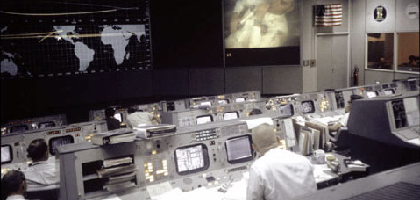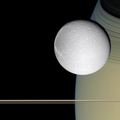
“We were the ones in the trenches of space and with only the tools of leadership, trust, and teamwork, we contained the risks and made the conquest of space possible.”
–Gene Kranz
At the 2010 Kolbe Personal Growth Seminar in Tempe, AZ, I was asked to give a brief presentation to the audience of 180-plus Kolbe Certified Consultants in attendance. One of the ties between Kolbe and NASA is the use of a clip from the movie “Apollo 13” as a learning exercise. Since all of the consultants are familiar with the clip, with NASA, and with Mission Control, I decided to use the clip as the basis to share an insider’s perspective on Mission Operations.
On the previous day, Dr. Jerry Porras, author of the best selling leadership book, “Built to Last”, gave an overview of the fundamental basis for what underlies companies and organizations that are built to last: Purpose, Core Values, and Vision. I seized upon the ideas of core values and the “Apollo 13” clip, and chose those as the basis of providing a behind-the-scenes context to Mission Operations for the Kolbe consultants. I decided to share the Foundations of Mission Operations.
The Foundations of Mission Operations, in its simplest description, is a set of core values and guiding principles that governs everything we do in Mission Operations, whether it is operations in Mission Control, astronaut and flight controller training, or mission planning, design and analysis work.
Foundations of Mission Operations
1. To instill within ourselves these qualities essential to professional excellence
Discipline…Being able to follow as well as to lead, knowing that we must master ourselves before we can master our task.
Competence…There being no substitute for total preparation and complete dedication, for space will not tolerate the careless or indifferent.
Confidence…Believing in ourselves as well as others, knowing that we must master fear and hesitation before we can succeed.
Responsibility…Realizing that it cannot be shifted to others, for it belongs to each of us; we must answer for what we do, or fail to do.
Toughness…Taking a stand when we must; to try again, and again, even if it means following a more difficult path.
Teamwork…Respecting and utilizing the abilities of others, realizing that we work toward a common goal, for success depends upon the efforts of all.
Vigilance… Always attentive to the dangers of spaceflight; Never accepting success as a substitute for rigor in everything we do.
2. To always be aware that suddenly and unexpectedly we may find ourselves in a role where our performance has ultimate consequences.
3. To recognize that the greatest error is not to have tried and failed, but that in the trying we do not give it our best effort.
The Foundations were mostly born from a series of challenges and crises that the team faced in the early days – during Mercury, Gemini, and Apollo. As Gene Kranz has told it, the first teams were adapting from the high-performance aircraft flight test world the techniques used there as the basis for space flight control, refining and learning as they went. Quickly, “discipline”, “confidence”, “responsibility”, and “teamwork” became obvious as essential core values of the flight control team in Mercury and Gemini. After the Apollo 1 pad fire in 1967, Gene wrote a memo to the team that emphasized “competence” and “toughness” as being the means to build upon the lessons learned and to move forward from that tragic event. (Gene even had each member of the flight control team write “tough and competent” on their office blackboards that was not to be erased until the first moon landing mission was conducted successfully.) The Foundations – discipline, competence, confidence, responsibility, toughness, and teamwork – served Mission Operations extremely well.
Then the Columbia accident happened in 2003.
In the aftermath of Columbia, we learned that we had become over-confident and complacent in our track record of success. From that, we embraced the core value “vigilance”.
The beauty of the Foundations of Mission Operations is that they weren’t dreamed up by a focus team on a management retreat, later to be forced down the throats of the work force. They were revealed and became evident and obvious as a part of the way everyday business of human spaceflight is conducted, and has been conducted, for 50 years. The Foundations speak to a higher calling and sense of duty we have to accomplish the mission and to derive value from our activities in space. They are as much about us as individuals as they are the organization.
Imagine the possibilities if every organization had a set of core values and guiding principles as good as these. Along with a sense of purpose and vision, these organizations would be unstoppable. They, like Mission Operations, would be built to last.

You must be logged in to post a comment.